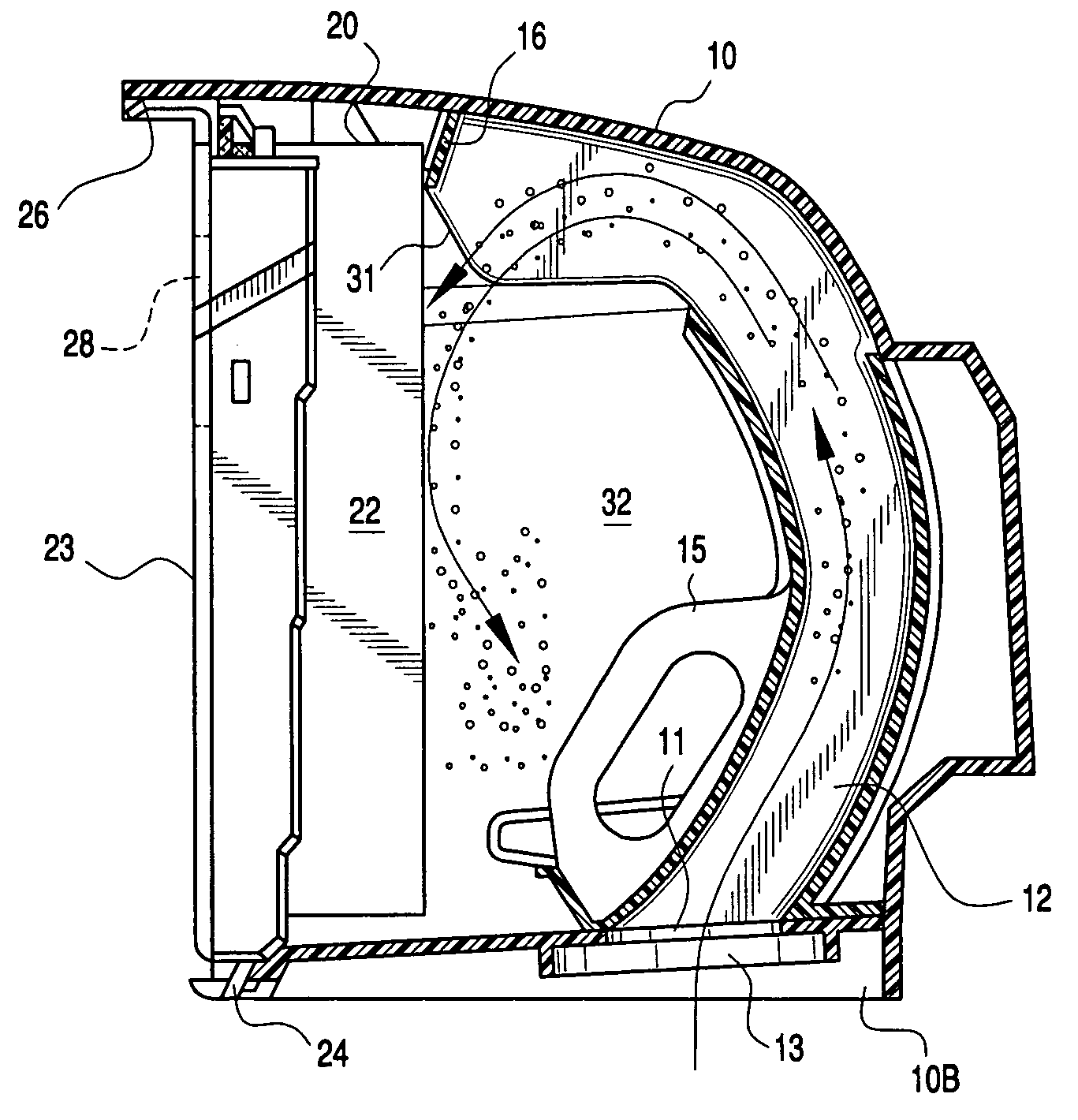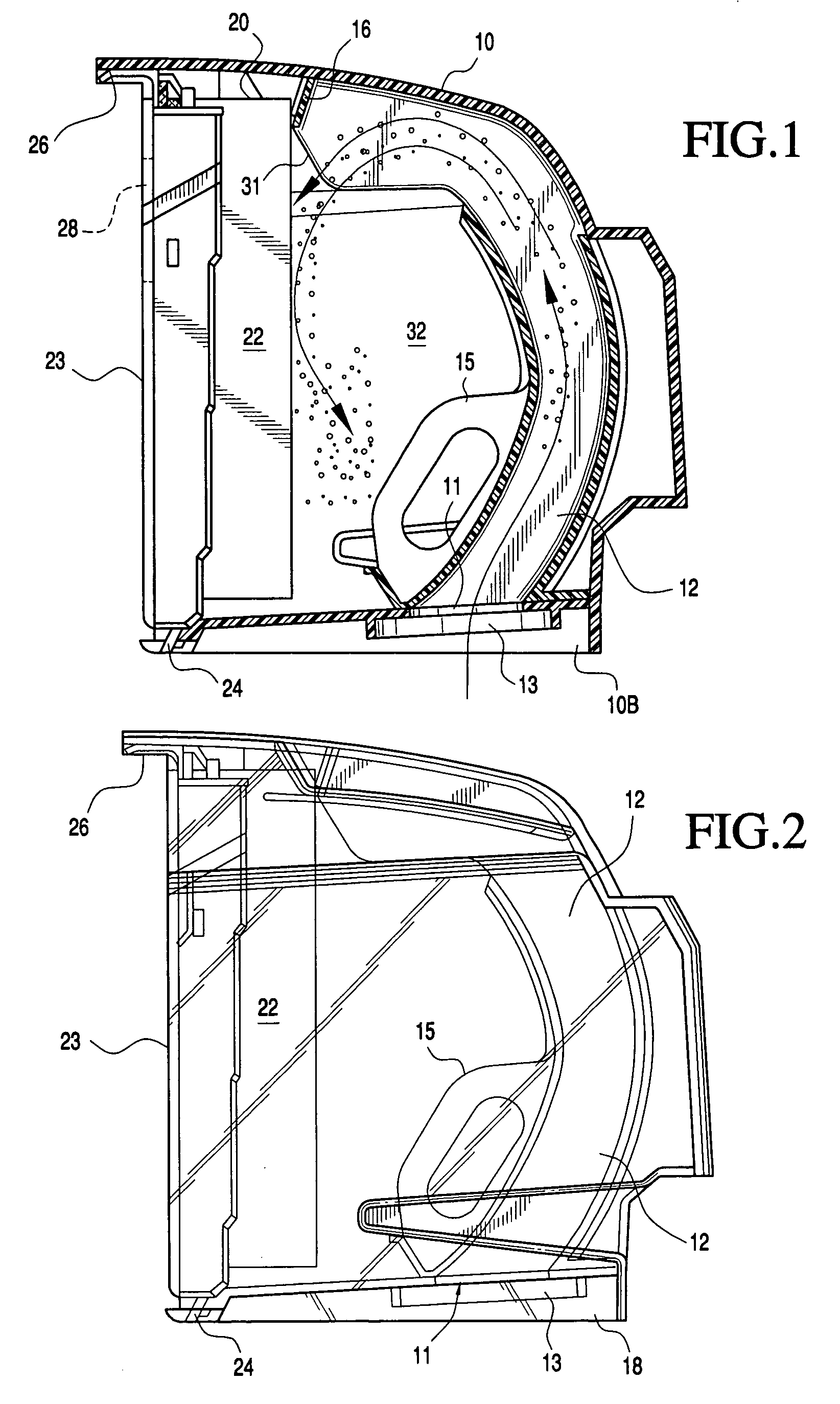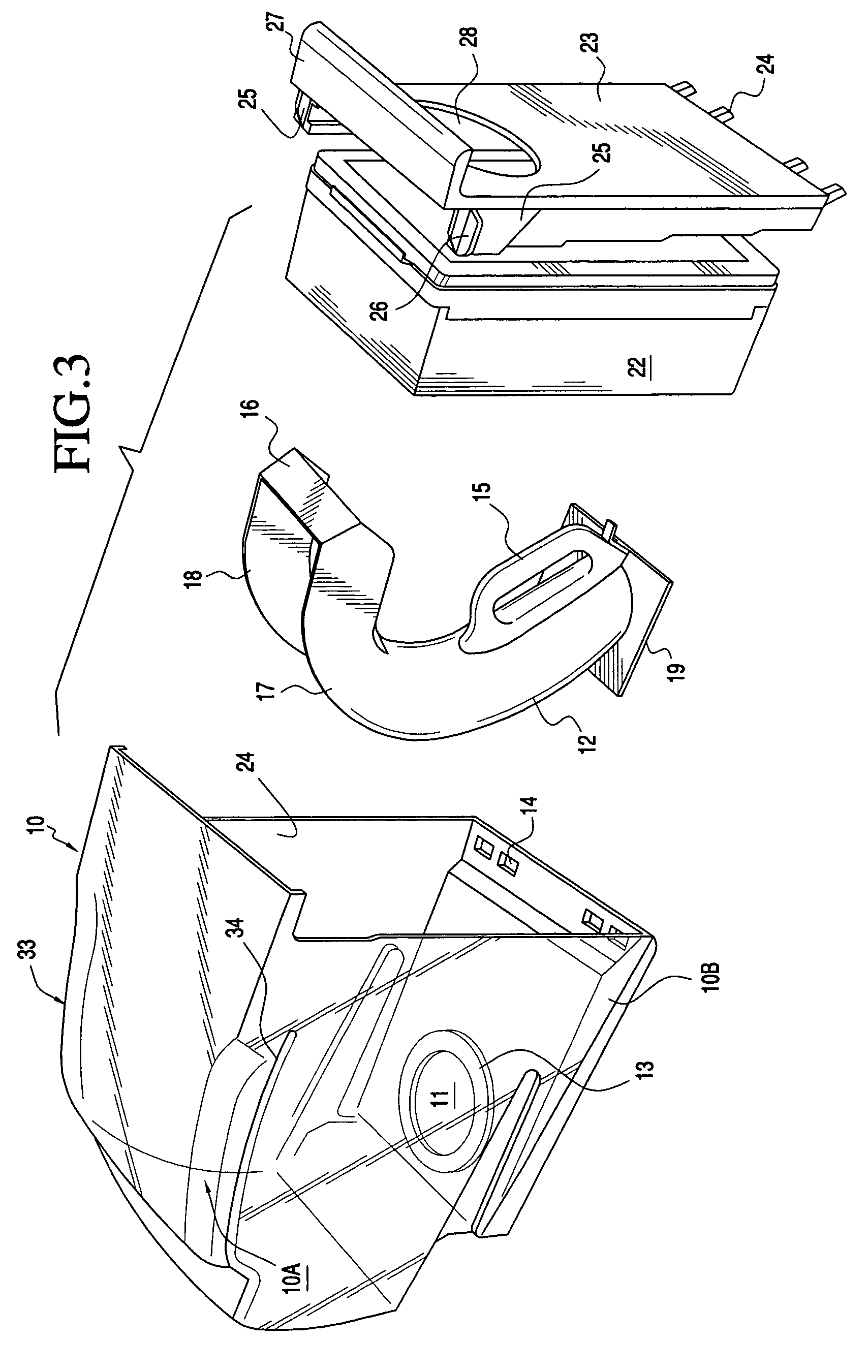Dust bin and filter for robotic vacuum cleaner
- Summary
- Abstract
- Description
- Claims
- Application Information
AI Technical Summary
Benefits of technology
Problems solved by technology
Method used
Image
Examples
Embodiment Construction
[0012]FIGS. 1–2 illustrate, respectively, the plan view and section view of the preferred embodiment of the dust bin as it sits within an autonomous vacuum cleaner. A container 10 is shown having a generally rectangular cross section, and may be made of acrylic or transparent / translucent material. An inlet 11 of the dust bin is formed on a recessed base 10b. The recessed base has an opening which includes a seal 13 which forms a connection to a passageway (not shown) connected to a vacuum cleaner nozzle. A source of vacuum is applied against outlet 28 when the dust bin 10 is located within its compartment of the autonomous vacuum cleaner, and a vacuum is drawn through outlet 28, filter 22, duct 12 and inlet 11.
[0013]Air laden with dirt enters the inlet 11, and travels through duct 12 which has an outlet 31 positioned in front of filter 22. The duct outlet 13 has a cross section plane which faces the filter assembly 22 at an angle. The dirt laden air exiting the duct 12 has a traject...
PUM
| Property | Measurement | Unit |
|---|---|---|
| vacuum pressure | aaaaa | aaaaa |
| angle | aaaaa | aaaaa |
| acute angle | aaaaa | aaaaa |
Abstract
Description
Claims
Application Information
 Login to View More
Login to View More - R&D
- Intellectual Property
- Life Sciences
- Materials
- Tech Scout
- Unparalleled Data Quality
- Higher Quality Content
- 60% Fewer Hallucinations
Browse by: Latest US Patents, China's latest patents, Technical Efficacy Thesaurus, Application Domain, Technology Topic, Popular Technical Reports.
© 2025 PatSnap. All rights reserved.Legal|Privacy policy|Modern Slavery Act Transparency Statement|Sitemap|About US| Contact US: help@patsnap.com



